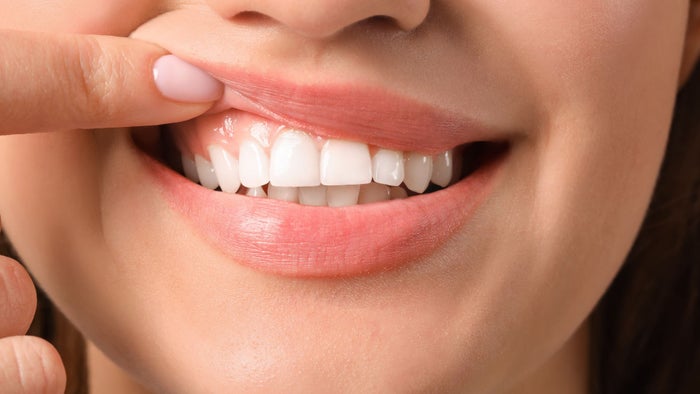
Take a look at any yoghurt or cereal advert and you’ll hear how calcium helps keep your bones and teeth strong. But did you know that calcium is also vital to healthy neurons, muscles and more?
In this article, we'll dive into the many health benefits of calcium, shedding light on why it's an essential mineral for your overall wellbeing. We’ll also set out some of the best foods to eat to support your calcium intake.

What Is Calcium?
Calcium is an essential mineral, like magnesium and zinc. Our bodies don’t produce calcium so we have to get it through food, drinks or supplements.
Most of it goes to our bones and teeth, but a small percentage of it is used in other parts of the body. That small amount gets used across a wide range of processes, which we’ll get into later.
What Does Calcium Do For The Body?
Like other vitamins and minerals, calcium isn’t tied to just one part of the body. In this section we’ll explain the processes where calcium plays the biggest role and how it works.
Muscle Contraction and Relaxation
Calcium's role in everyday muscle function is crucial. It serves as a trigger, initiating the process of muscle contraction by interacting with specialised proteins. In skeletal muscles, the influx of calcium ions is what sparks the series of events leading to muscle contraction. When calcium levels decrease, muscles relax. Without this process, we literally wouldn’t be able to move! (1)

Nerve Transmission
Calcium is a key player in the complex process of nerve transmission. Neurons, the basic units of the nervous system, use calcium ions to transmit electrical impulses from one end of the nerve cell to another. The influx of calcium ions, like with muscle contraction, into nerve cells triggers the release of neurotransmitters - chemicals that facilitate communication between nerve cells and transmit signals throughout the nervous system (2).
Blood Clotting
The ability of blood to clot is crucial for preventing excessive bleeding and promoting wound healing. Calcium plays an essential role in this process by helping to activate platelets. These are tiny cell fragments in the blood which help to form a clot, seal the wound and maintain the integrity of the circulatory system (3).
Cellular Signalling
Calcium acts as a universal messenger in cells, facilitating numerous signalling pathways. When a cell receives a signal, calcium ions often rush into the cell or are released from internal storage, triggering a series of events that control cell functions (4).

Enzyme Activity
Calcium binds to various enzymes, which are biological molecules that catalyse chemical reactions within the body. These enzymes play critical roles in processes like digestion, energy production, and blood vessel dilation. By binding to enzymes, calcium assists in promoting their optimal activity (5).
How Much Calcium Do We Need?
The amount of calcium that we need changes as we get older, and we have to get it from dietary sources since our bodies don’t produce it. Because calcium is so vital to bone health and growth, babies and teenagers need extra calcium to support their growth spurts.
Into older adulthood, a higher calcium intake may be required to maintain optimal bone density and reduce risk of osteoporosis and bone fractures. However, more research is needed to support this.
This table shows the recommended daily intake of calcium by age group:
|
Age |
Recommended daily intake of calcium |
|
Under 1 year |
525mg |
|
1 - 3 |
350mg |
|
4 - 6 |
450mg |
|
7 - 10 |
550mg |
|
11-18 |
800mg (girls), 1000mg (boys) |
| 19 - 64 |
700mg |
Sources Of Calcium
When it comes to meeting our calcium needs, our dietary choices play a crucial role. While dairy products like milk and cheese have long been synonymous with calcium intake, there are many other foods that can help with your calcium intake. Whether you're lactose-intolerant, vegan, or simply looking to broaden your calcium sources, there's a wealth of options to explore.
Dairy products, such as milk, cheese and yoghurt
Leafy greens, such as kale, spring greens and bok choy
Fortified foods, such as almond milk, soy milk, and oat milk
Tofu
Almonds
Chia seeds
Beans and lentils, such as chickpeas, black beans, and lentils
Sesame seeds and tahini
Figs
Oranges

Supplementing With Calcium
While a balanced diet rich in calcium sources is an ideal way to meet your mineral needs, certain situations may call for additional support through supplements. Calcium supplements can help bridge the gap between dietary intake and recommended levels, especially when specific dietary restrictions, health conditions, or life stages come into play.
Benefits Of Calcium Supplements
1. Bone health
Calcium supplements can help maintain and improve bone density, reducing the risk of osteoporosis and fractures, especially in individuals with insufficient dietary calcium intake.
2. Support during pregnancy and lactation
Pregnant and breastfeeding women often have increased calcium needs. Supplements can ensure that both the mother and the developing foetus receive adequate calcium for healthy bone development.
3. Preventing calcium deficiency
Calcium deficiency can lead to various health issues, such as muscle cramps, numbness, and weak bones. Supplements can help prevent and alleviate these symptoms.
4. Reducing risk of osteoporosis
As individuals age, bone density naturally declines, making them more susceptible to osteoporosis. Calcium supplements, along with other measures, can help mitigate this risk by providing the necessary mineral support.
5. Managing certain medical conditions
Some medical conditions, like lactose intolerance or certain digestive disorders, can hinder calcium absorption from food sources. Supplements offer an alternative way to ensure sufficient calcium intake for individuals with these conditions.

How To Take Calcium Supplements
Generally, the recommended intake for most adults falls around 700mg per day. However, it's important to remember that this includes both dietary calcium and any supplements you might take. It's always advisable to calculate your total daily calcium intake from both sources to ensure you're not exceeding safe limits.
Before embarking on any supplement regimen, including calcium, it's highly recommended to consult with a healthcare professional.
Potential Side Effects
While calcium supplements offer benefits, it's essential to be aware of potential side effects that can arise from their use. Just as with any supplement or medication, there can be individual variations in how the body responds to calcium supplementation. These side effects are more likely when taking too much calcium, so make sure to check what percentage of your daily calcium intake you’re supplementing.
High doses of calcium supplements can lead to digestive discomfort, including bloating, gas, and constipation.
Excessive calcium intake, especially when not balanced with other minerals like magnesium, can increase the risk of kidney stone formation.
Calcium supplements may interfere with the absorption of certain medications, such as antibiotics and some osteoporosis drugs.
Prolonged excessive calcium intake can lead to a condition called hypercalcemia, characterised by elevated levels of calcium in the blood. Talk to your doctor before taking food supplements, including calcium.
Taking Calcium With Other Supplements
In the realm of supplements, certain vitamins often team up with calcium to enhance overall health and wellbeing. These combinations can offer a synergistic approach to supporting various bodily functions.
Vitamin D: Often dubbed the "sunshine vitamin," vitamin D plays a critical role in calcium absorption and bone health. It helps the body utilise calcium effectively and supports the maintenance of strong bones.
Magnesium: Magnesium is another mineral that collaborates with calcium to maintain bone health and proper muscle function. It aids in calcium absorption and works in harmony to ensure a balanced mineral intake.
Vitamin K: Vitamin K plays a role in regulating calcium utilisation in bones and arteries, and helps ensure that calcium is deposited in bones rather than in blood vessels.
Before embarking on a supplement journey that involves combining calcium with other vitamins or minerals, it's best to consult a healthcare professional. A doctor or registered dietitian can assess your specific health needs, existing medications, and potential interactions.
Talk To Your Doctor
Myvitamins are not making any medical claims in this article. If you are concerned about your calcium intake, or considering implementing a calcium supplement, speak with your doctor.
Take Home Message
Calcium does much more than just keeping your bones and teeth healthy. It’s a powerhouse mineral that plays a role across your body, including in your neurons and muscles. To support your daily calcium intake, you can eat more dairy or try plant-based sources like beans and leafy greens.
For more expert advice and exclusive discounts, sign up to the Myvitamins mailing list.
FAQs
What foods have the most calcium?
Foods that are particularly rich in calcium include dairy products like milk, cheese, and yoghurt. Leafy green vegetables such as kale, collard greens, and broccoli are also excellent sources. Additionally, fortified plant-based milk alternatives, tofu, almonds, and chia seeds offer significant amounts of calcium.
Which fruits and vegetables are rich in calcium?
Dark, leafy green vegetables, such as kale, collard greens, spring greens, broccoli and bok choy, generally contain the most calcium. In the fruit category, figs, oranges, and fortified fruit juices can contribute to your calcium intake.
Can you take vitamin D and calcium together?
Yes, taking vitamin D and calcium together is often recommended. Vitamin D plays a vital role in helping the body absorb and utilise calcium effectively. These two nutrients work synergistically to support bone health and overall wellbeing. Vitamin D helps facilitate calcium absorption from the digestive tract and directs its proper deposition in bones.
Can you take calcium and magnesium together?
Yes, you can take calcium and magnesium together. These two minerals often complement each other. While calcium is known for its role in bone health and muscle function, magnesium supports muscle relaxation and various biochemical reactions in the body. Combining the two supplements can help maintain a balanced mineral intake and support overall muscle and nerve function.








